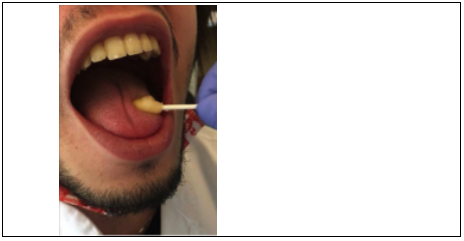Head and neck cancer and metallic taste: understanding the causes to improve patient care
Published on 01 September 2025

In patients suffering from head and neck cancers, treatments such as radiotherapy often leads to significant taste impairment, which alters their quality of life. Until now, research and litterature investigating or describing metallic taste and its etiology are quite scarce. The Valence Hospital and the CSGA conducted a prospective study involving the follow-up of 44 newly-diagnosed patients to better understand the origin of this disorder.
Twelve out of 44 patients reported a metallic taste. The researchers explored one hypothesis: oxidative stress would induce oxidation of lipids in the mouth, generating volatile compounds responsible for the metallic taste. To test this hypothesis, salivary markers of oxidative stress (including malondialdehyde, MDA, a lipid degradation product) and redox balance were measured before, during and up to one year after treatment.
The results showed that the treatments did indeed modify salivary oxidative stress. In particular, salivary MDA concentration doubled during radiotherapy. However, when patients with metallic taste were compared with those without, no significant difference in MDA was observed (1). This suggests that other mechanisms explain the appearance of metallic taste.
Another aspect of the study was the effectiveness of a mouthwash based on bovine lactoferrin, which is known to neutralise free radicals, which are products of oxidation. In 63% of patients, this mouthwash partially relieved the metallic taste, according to their own perception.
The study also confirmed that other taste disorders (sweet, salty, acidic), which appeared during treatment in certain areas of the tongue, were clearly linked to high levels of MDA.(2)
Finally, the hypothesis of a nervous system dysfunction was studied by experimentally comparing taste perception at the base of the tongue (innervated by the glossopharyngeal nerve) and at the tip of the tongue (innervated by the facial nerve). This hypothesis has been excluded. On the other hand, mucositis (inflammation of the oral mucosa) is common in these patients and is strongly associated with the metallic taste. Inflammation therefore seems to be a key factor.(3)
In conclusion, if oxidative stress is indeed present, oral inflammation would be a likely cause of the metallic taste. These results remain to be confirmed in a larger number of patients.
Contact
Read more
(1) Exploring the role of oxidative stress in metallic taste during head and neck cancer treatment : a study of salivary markers and therapeutic interventions.
Brignot H, Buiret G, Thomas-Danguin T, Feron G, editors. 7th International Conference on Food Oral Processing Physics Physiology and Psychology of Eating; 2025 12th to 14th of May 2025; Valence, Spain.
2) Altérations gustatives et salivaires chez des patients atteints de cancer des voies aérodigestives supérieures : étude longitudinale prospective.
Buiret G, Thomas-Danguin T, Brignot H, Feron G. Cahiers de Nutrition et de Diététique. 2025;60(3):183-92.
(3) Evaluating the Etiology of Metallic Taste During Head and Neck Cancer Treatments: A Study of Facial and Glossopharyngeal Nerve Interactions.
Buiret G, Brignot H, Septier C, Feron G, Thomas-Danguin T. Neuroscience. 2025;NSC-25-0585R1
Key words
Oxidative Stress, Salivary Biomarkers, Radiotherapy, Taste Alterations, Oral Inflammation.

